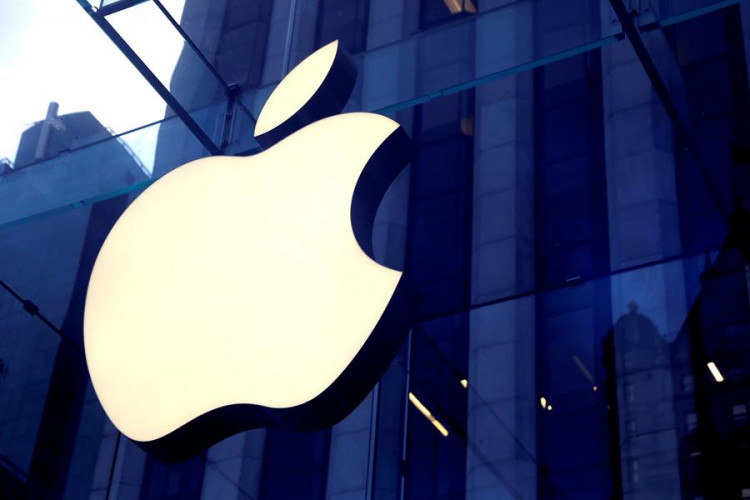In December of last year, Apple CEO Tim Cook visited Phoenix alongside U.S. President Joe Biden to tour a high-profile factory under construction by Taiwan Semiconductor Manufacturing Company (TSMC). Cook indicated that this factory would produce chips for Apple.
However, Cook sidestepped an unsettling truth: this Arizona-based factory does little to make the U.S. self-sufficient in chip production. The facility, a focal point of Biden's plan, comes with a $40 billion price tag. Interviews with several TSMC engineers and former Apple employees reveal that many advanced chips manufactured in Arizona for clients like Apple, NVIDIA, AMD, and Tesla will still require assembly-or "packaging"-in Taiwan.
TSMC staff shared that there are no plans to establish packaging facilities in Arizona or elsewhere in the U.S., primarily due to the high costs associated with such projects.
This revelation suggests that while TSMC's Arizona factory might score political points, it won't reduce America's reliance on Taiwan. The factory is set to commence large-scale production in 2025, employing 4,500 staff across two facilities.
The inability of TSMC to fully assemble chips for Apple and other companies in the U.S. underscores the challenges Biden faces in bringing chip manufacturing stateside without a complete overhaul of the semiconductor supply chain, which is predominantly based in Asia, with Taiwan playing a particularly crucial role.
While Cook has stated that Apple will be the largest customer of TSMC's Arizona facility, he hasn't specified which chips will be produced there or in what quantities. Packaging for less critical chips, like those for iPads and Macbooks, can be handled outside of Taiwan.
NVIDIA, AMD, and Tesla also plan to use the Arizona facility for chip production, though they haven't specified which ones. However, TSMC employees have indicated that cutting-edge AI chips, including NVIDIA's coveted H100 chip, still rely on packaging technologies exclusive to TSMC in Taiwan. TSMC is investing billions to expand its packaging capabilities in Taiwan to meet the explosive demand for AI computing.
"Huge Expenditure"
Whether or when TSMC introduces advanced chip packaging to the U.S. hinges on cost. Paul Triolo, Senior Vice President for China at consulting firm DGA-Albright Stonebridge Group, suggests that the volume of chips produced at TSMC's Arizona facility doesn't justify the price of constructing advanced packaging facilities there.
Triolo and other chip analysts, along with industry organizations like the Institute of Printed Circuits, believe Washington hasn't done enough to encourage packaging companies to shift operations to the U.S. Only 3% of global advanced packaging occurs in the country.
The U.S. government is aware of the advanced packaging gap. Last year, the CHIPS Act was passed, offering around $52 billion in subsidies for chip companies building factories in the U.S. and calling for a national advanced packaging manufacturing initiative. This initiative will receive at least $2.5 billion in funding from the CHIPS Act this year, but the IPC suggests packaging hasn't been given "explicit priority."
The U.S. Department of Commerce played a key role in shaping the CHIPS Act. While a spokesperson declined to comment on potential applicants seeking funds for advanced packaging facilities, they referenced a February speech by U.S. Commerce Secretary Gina Raimondo, in which she stated the U.S. would develop multiple high-capacity advanced packaging facilities and become a global leader in the field.
However, Triolo argues that without more subsidies, it remains unclear how advanced packaging companies can justify the high costs of building facilities in the U.S. compared to Asia.
Apple's Discount
Former Apple and TSMC employees have shared that Apple pays a premium for using TSMC's advanced packaging, with Apple being the only major client utilizing TSMC's methods extensively.
However, previous reports suggest Apple receives significant discounts on TSMC's packaging, tied to a commercial contract for manufacturing processor chips, granting Apple favorable terms. Apple also uses TSMC's advanced packaging for the Apple Watch and its most advanced Mac desktop computers.
SemiAnalysis's Patel notes that as chip packaging becomes more advanced, clients like Apple and NVIDIA will find it increasingly challenging to separate themselves from TSMC's Taiwan factories. This is because TSMC always develops the latest manufacturing and packaging processes domestically, where costs are lower and talent is more accessible.
This means that advanced packaging methods TSMC is considering for Apple will almost certainly only be available in Taiwan. An employee with direct knowledge of the matter at TSMC mentioned that Apple is evaluating the potential use of Small Outline Integrated Circuits for future Macbooks and Mac computers. This would split the processor into smaller blocks, stacking them to make the overall chip smaller, enhancing performance.






